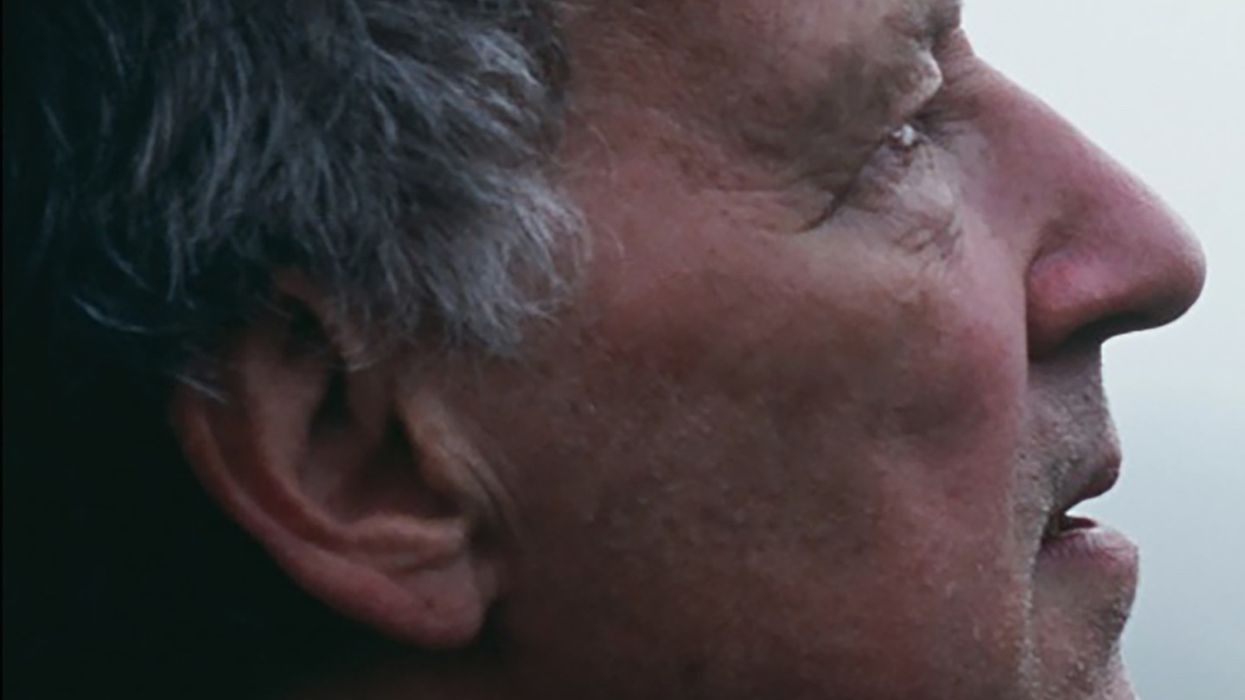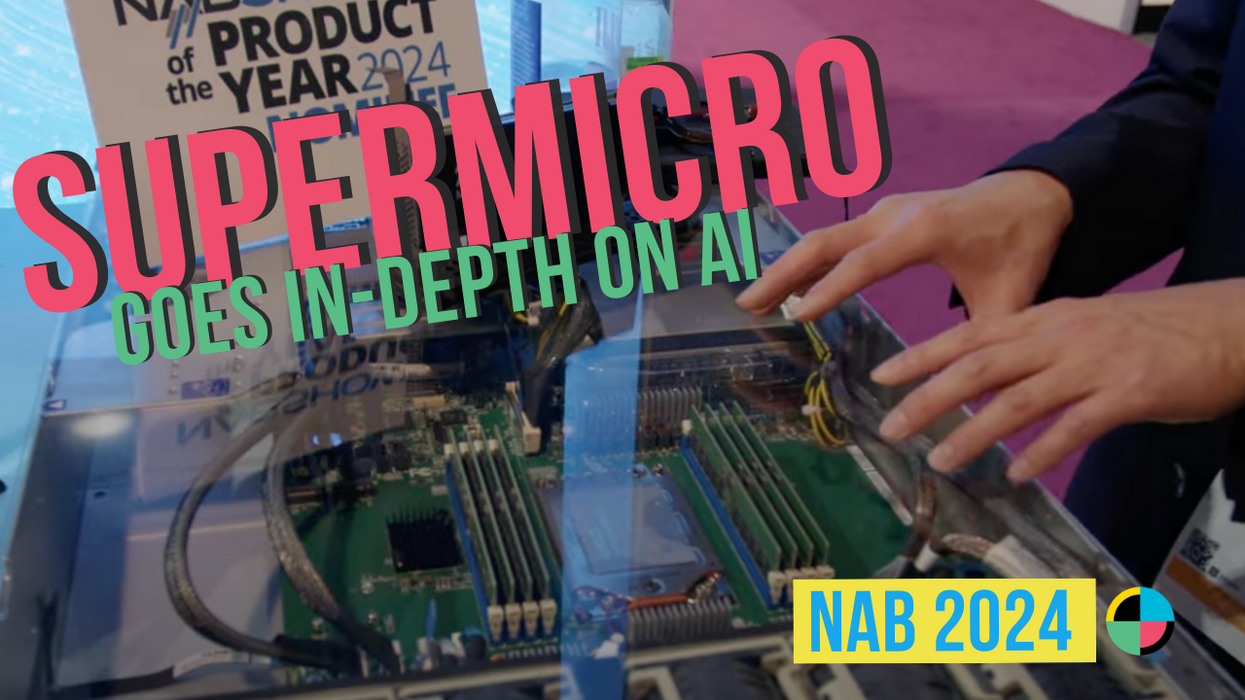Herzog Tells NFS: 'A Computer Will Not Create a Film as Good as Mine in 4,500 Years!'
"The world belongs to you now," Werner Herzog goes on to say at the 2016 Sundance Film Festival.

A few days after the premiere of his new documentary, LO AND BEHOLD: Reveries of the Connected World (where he gave colorful responses in a post-screening Q&A), director Werner Herzog sat downwith Netscout's Jim McNiel and members of the press to answer questions. In the cozy Utah Film Commission's Living Room, yours truly was there to ask a few of my own on No Film School's behalf! From his start as a late-pubescent high schooler, to his style of documentary investigation, to his advice on seizing the paradigm shift of online distribution, Herzog's responses don't disappoint.
First, Herzog speaks anecdotally about being a scrawny, ambitious kid who used humiliation at the studio level as motivation for his career:
I studied how to develop projects and stories which I sent out as a school kid. But my puberty was late, so I was really short and tiny, and a schoolboy. Whenever I walked into an office of a production company I was immediately thrown out. I was simply too young. And then one day a production company loved my project and they accepted to have me as a first time director. But I had never met them. I only wrote letters to them, and I swear to God, my first phone call I ever made in my life, was at the age of seventeen, because I grew up in a very remote mountain valley in Bavaria, and we had no running water, no electricity, and no radio or whatever.
Finally I had to meet them, and it was this very significant moment because that's where I started to become a filmmaker. The secretary asks me in, and there's this boy walking in and two producers behind a huge oak desk. Both of them look beyond me, and then look out as if the father had come into their office with his child. But there was only the child there. One of them shouts out and is, "Ah ha ha," and laughs out loud and he says, "Ah, the kindergarten is trying to make movies nowadays." I knew this is the moment where I have to take my fate in my own hands, and I walked out before I had even spoken a word. I started to earn money that very same night. Not as a bouncer in a sex club, I was too weak for that, but I worked in a steel factory as a welder. I did the night shift, and during the day I was in high school. I did that for two and a half years, and then I had enough money to make my first film as my own producer.
So I would advise, don't waste your life waiting for a production company or a Hollywood major to sign you up. You better make your own films first, for little money, and you make your impact, because it will be very, very good. And you will kick up some dust.
I worked in a steel factory as a welder. I did the night shift, and during the day I was in high school. I did that for two and a half years, and then I had enough money to make my first film as my own producer.
NFS: You talk to all kinds of people in the film -- cosmologists, theoretical physicists -- talking about complicated things. At the premiere someone asked you about that, calling them "interviews" and you said you didn't like that term. What is your process of eliciting conversation from people on camera?
Werner Herzog: That's exactly right, I do not do interviews. I have no catalog of questions. I'm just very curious, and how can I say -- I'm kind of unprepared. I didn't do any research into the internet. Absolutely none. But I come up spontaneously with the right way to plow into it. It's my way to make films. How can I say, the process itself is as fascinating for me as the result.
It's the quintessential human experience, which a computer doesn't have...we are creating stories that a computer will not match.
NFS: In the film there's this mention that perhaps someday soon, a computer could make a movie. While there are some films that seem more formulaic than others, you respond that a computer couldn't make your kind of movie. What do you mean?
Werner Herzog: No, no. It's much better than that. Sebastian Thrun says maybe there will be an artificial intelligence, a computer that makes films even better than yours. And my answer is, "Absolutely not!" I'm convinced -- absolutely not. But it's interesting that you are asking it, because I do run my own rogue guerrilla style film school, which is long weekend seminars. And among the applications, I found a young filmmaker who has put out material and a random computer program, which understands editing, has edited a movie. And he sent me three examples of computer-made movies, computer-edited movies. At this point in time, it's pretty senseless. It doesn't get you anywhere, and the randomization of editing doesn't make any sense at all. It may make a little bit more sense in the future, but a computer will not create a film as good as mine.
Jim McNiel: In your lifetime.
Werner Herzog: In the next four and a half thousand years!
Jim McNiel: I actually agree with Werner. I don't know anyone here who's heard a song generated by a computer that you can't get out of your head, and you love, and it's on your playlist. There's been lots of technology used to do composition, but it has fallen way short. I think musicals and film have a lot in common. There's a bunch of journal editing systems, literature editing systems, but I think we're a long way away from computers being able to emulate art. That's a tough thing to do. I do not want anyone to underestimate what is going to be possible, and how easily people in this room are going to be fooled into thinking that you're dealing with a human when you're dealing with a computer. That's probably the next thing that's going to trick a lot of people.
Werner Herzog: I would like to add one thing, it's the quintessential human experience, which a computer doesn't have. When you have a baby, and it's your child, and you take it and you just sniff the scent of its head and the hair, it's something a computer will never appreciate. But it's something so unique and so wonderful, and because of these experiences -- multiple experiences like that as a human being, which a computer cannot have -- we are creating stories that a computer will not match.
You are the ones who will develop distribution systems on the internet, for example. It's your task now, and I cannot give you advice about how to do it, but the world is yours.
Herzog also had some parting advice for filmmakers:
You have to have some sort of vision. If you don't have a vision, you will fail in the entire system. That's one thing, and you have to have the courage to do what you really want and have to do. Today it has become fairly easy to make films, because it's not expensive anymore. You can make a feature film, a full-length theatrical feature film, for $10,000. Or you can make a one and a half hour documentary, which is having a theatrical run, like I did, which was done with only two persons. It was a cinematographer and I, did the sound and directed the film. And it was a film in Antarctica. The film was very professional, it had a very profitable theatrical run, and it had an Academy Award nomination, which is completely absurd in my case, because normally I do not even get into the short list of things. But it doesn't really matter.
The tools, the instruments are at your disposal. If you don't have the $10,000 for doing a feature film, work in a lunatic asylum for a few months and you will earn enough money, or do something really solid where you're exposed to the real world. And you will get the money together and then make your film. Today, the world belongs to you now. There's a real paradigm shift on the internet, and shift of, for example, distribution systems that are failing most of the time nowadays. The regular distribution systems. But you are the ones who will develop distribution systems on the internet, for example. It's your task now, and I cannot give you advice about how to do it, but the world is yours.
For more, see our complete coverage of the 2016 Sundance Film Festival.
No Film School's video and editorial coverage of the 2016 Sundance Film Festival is sponsored by Blackmagic Design.














